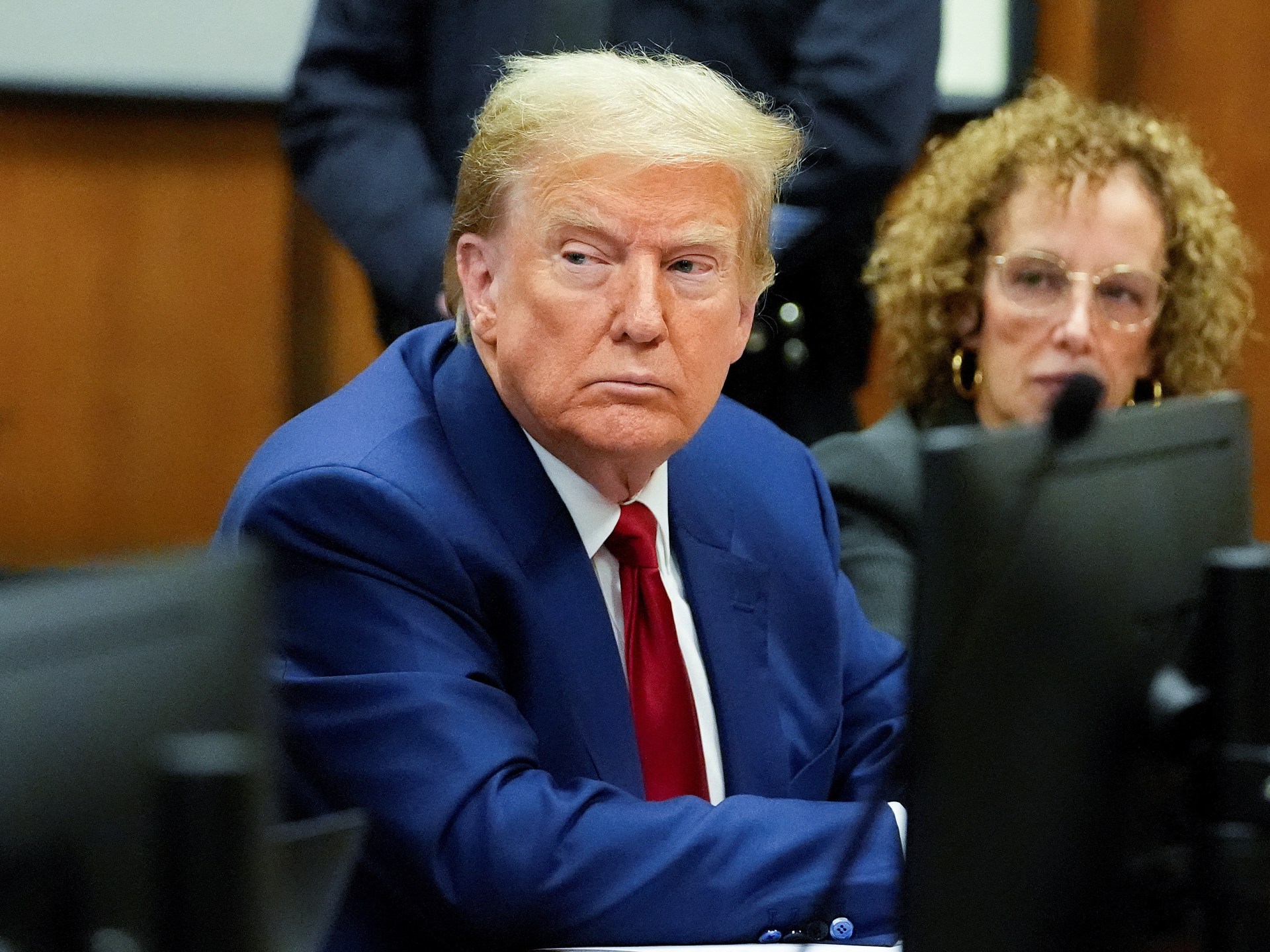US judges reject Trump’s attempt to dismiss charges in two criminal cases | Donald Trump News
Trump has sought to dismiss cases accusing him of election interference in Georgia and of mishandling classified files.
Donald Trump has suffered setbacks in two criminal cases against him, after judges in the United States nixed the former president’s efforts to dismiss charges over his efforts to overturn the 2020 election and his handling of classified documents.
In Florida on Thursday, US District Judge Aileen Cannon rejected Trump’s attempt to have the case accusing him of mishandling secret government files thrown out.
Trump had argued that US law authorised him to retain highly sensitive documents at his Mar-a-Lago estate in Palm Beach, Florida, after leaving office in 2021. He cited the Presidential Records Act, which allows former presidents to keep personal records unrelated to their official responsibilities.
But prosecutors said he was not authorised to keep secret information related to US national security, even if he viewed the records as personal.
Separately on Thursday, the judge overseeing the election interference case in Georgia rejected Trump’s argument that the indictment seeks to criminalise political speech protected by the First Amendment.
The First Amendment of the US Constitution guarantees the right to free speech.
But Fulton County Superior Court Judge Scott McAfee wrote in his decision that, at the current pretrial stage, he must consider the language of the indictment in a way that is favourable to the prosecution.
Georgia prosecutors have accused Trump and 18 others of joining a conspiracy to “unlawfully change the outcome” of the 2020 vote in the US state.
But McAfee wrote that the charges do not suggest that Trump and the other defendants are being prosecuted simply for making false statements, but rather that they acted willfully and knowingly to harm the government.
“Even core political speech addressing matters of public concern is not impenetrable from prosecution if allegedly used to further criminal activity,” the judge wrote.
Thursday’s decisions mark the latest developments in ongoing efforts by Trump and his legal team to challenge the four criminal indictments against him, two of which relate to his attempts to overturn the results of the 2020 election. He lost that race to current President Joe Biden.
Trump has pleaded not guilty in all the cases. He has also accused prosecutors of conducting a politically motivated “witch hunt” that aims to derail his 2024 election campaign.
Trump is the presumptive Republican presidential nominee and is expected to face Biden in November’s contest.
While the criminal indictments have failed to curb Trump’s support among his Make America Great Again (MAGA) base, experts say a potential conviction in any of the cases could affect his chances at the ballot box.
But it remains unclear whether a verdict will be reached before the election, and Trump’s team has sought to delay many of the legal proceedings.
Trials in any of the four cases could create scheduling conflicts during a busy campaign season.
Georgia decision
Thursday’s decision in Georgia echoed an earlier ruling in the federal election interference case against Trump, brought by Special Counsel Jack Smith.
US District Judge Tanya Chutkan wrote in December that “it is well established that the First Amendment does not protect speech that is used as an instrument of a crime”.
The Georgia judge, McAfee, added in his decision that even lawful acts involving speech protected by the First Amendment can be used to support a charge under Georgia’s anti-racketeering law, which is being invoked in the case.
But McAfee did leave open the possibility that Trump and others could raise similar arguments “at the appropriate time after the establishment of a factual record”.
Steve Sadow, Trump’s lead lawyer in Georgia, said in an email to The Associated Press (AP) that Trump and the other defendants “respectfully disagree with Judge McAfee’s order and will continue to evaluate their options regarding the First Amendment challenges”.
He called it significant, though, that McAfee made it clear they could raise their challenges again later.
A spokesperson for Fulton County District Attorney Fani Willis declined to comment to AP.
Check out our Latest News and Follow us at Facebook
Original Source







